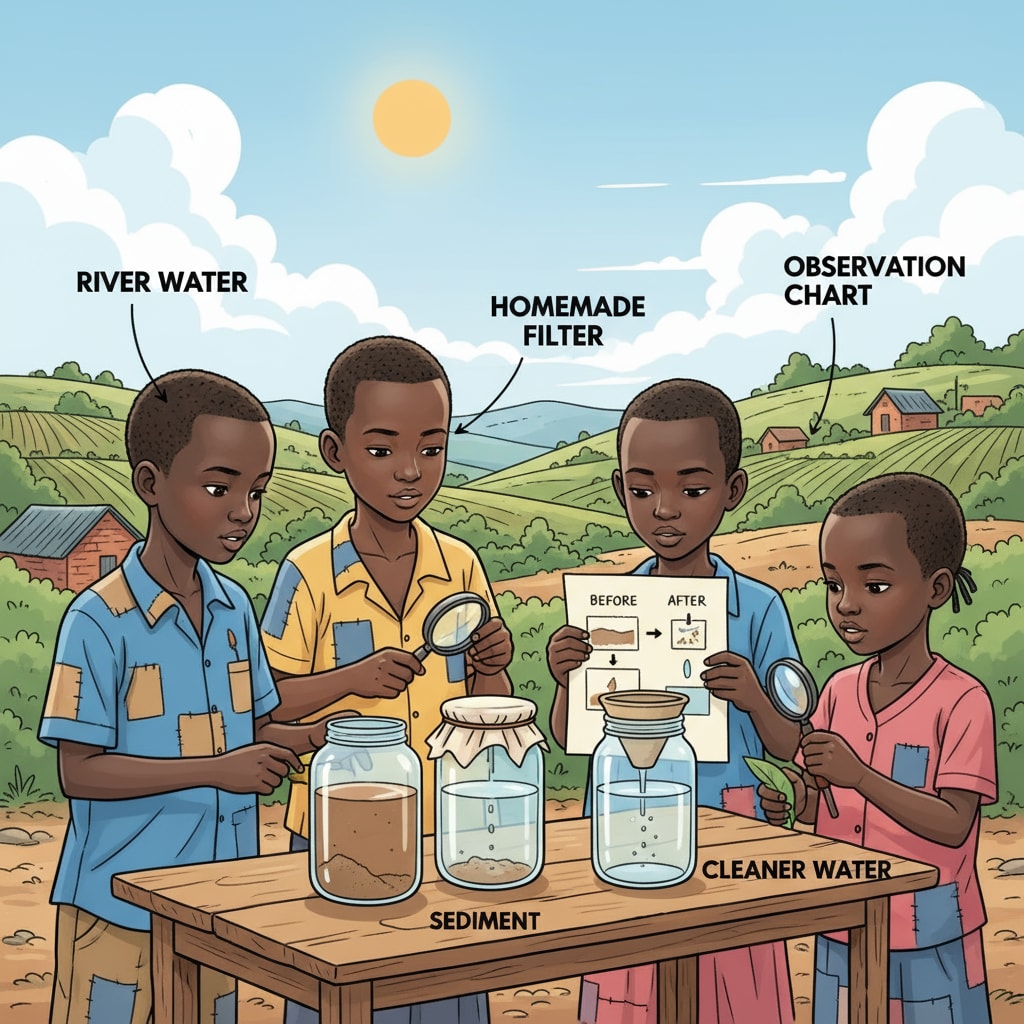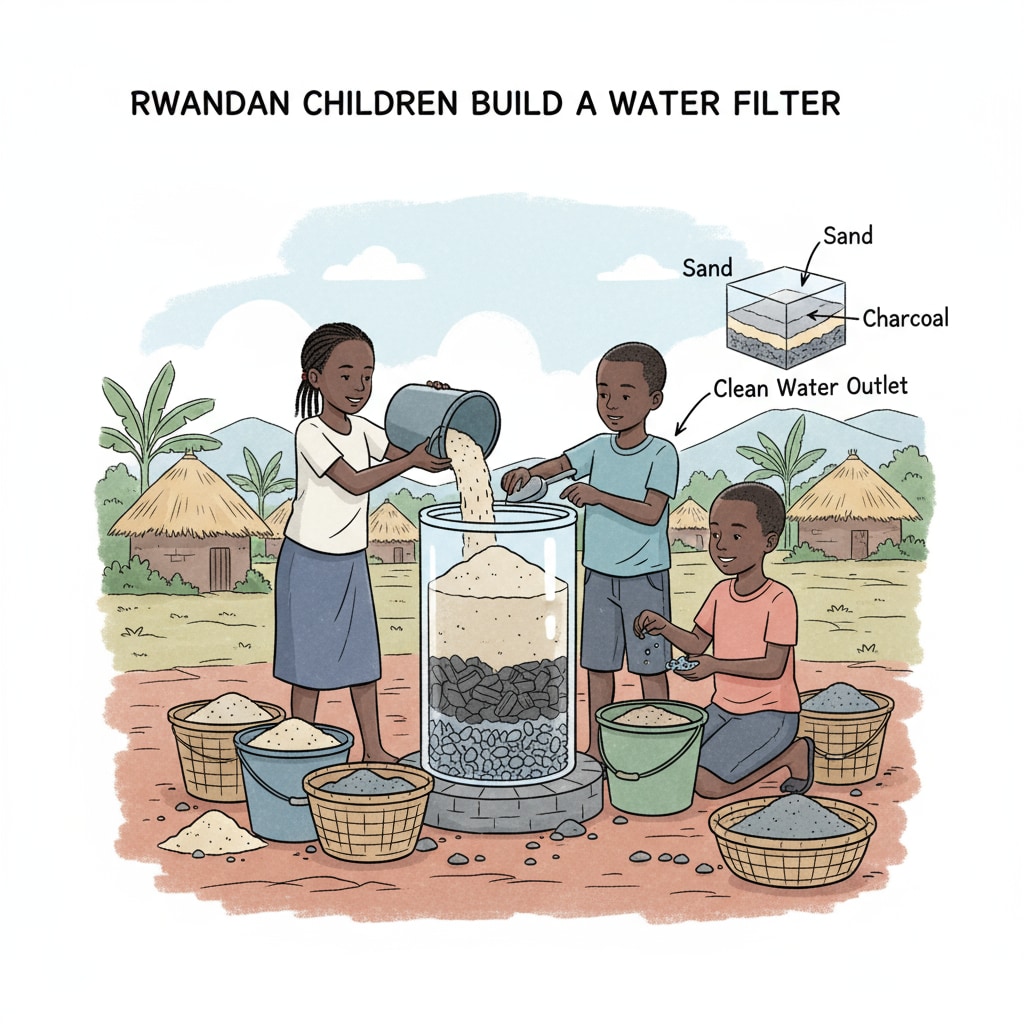In the rural areas of Rwanda, where resources are limited, implementing STEM education activities related to water resources for low-income children can have a profound impact. These activities not only spark scientific curiosity but also equip children with practical skills to address local water challenges. Let’s explore some innovative project designs.

Water Filtration Exploration
One of the fundamental aspects of water resources is water quality. A hands-on project focused on water filtration can be an excellent starting point. Children can be taught about the different components of water pollution and how to create simple filtration systems using locally available materials. For example, they can use sand, gravel, and charcoal to build a basic filter. This not only teaches them about the science of filtration but also encourages them to think creatively about resource utilization. Water filtration on Wikipedia

Rainwater Harvesting Initiative
Rainwater harvesting is a crucial practice in areas with limited water supplies. In this project, children can learn about the water cycle and how to collect and store rainwater. They can construct small rainwater harvesting tanks using recycled materials. This project not only enhances their understanding of the water cycle but also instills a sense of environmental responsibility. Additionally, it provides a practical solution to the local water shortage problem. Rainwater harvesting on Britannica
These projects are not only about teaching science but also about building teamwork and problem-solving skills. By working together on these hands-on activities, children learn to collaborate and communicate effectively. Moreover, they gain a deeper understanding of the importance of water resources in their daily lives.
Readability guidance: By using short paragraphs and lists, we can clearly present the key points. Each project serves as a practical example of how STEM education can be implemented in rural Rwanda. Through these activities, children are empowered to become active participants in addressing water-related issues in their communities.


